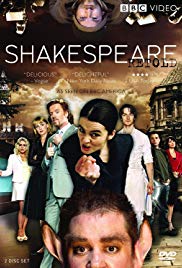ROMANTIC RELATIONSHIPS
1. During the first part of the play, why were Beatrice and Benedick always saying unpleasant things to each other?
Suggested Response:
Sometimes couples who love each other are afraid of the strength of their feelings. To cover up for this fear, they fight and bicker.
2. How could people as intelligent as Beatrice and Benedick be blind to their affection for each other and then permit themselves to be brought together by a transparent deception?
Suggested Response:
The emotional intelligence to know when you really love someone with whom you have a complicated relationship is not the same as the intelligence involved in making witty comments or doing well in school.
3. What kind of person is Claudio? In your evaluation of this character be sure to talk about his reaction to what he thought he observed Hero do on her balcony.
Suggested Response:
Here are two possible responses. Any response that takes into account the events of the play are just as valid. (1) Claudio is a fairly shallow character. He doesn’t give Hero a chance to explain and is totally taken in by appearances. He chooses a particularly cruel way to break off the engagement. He gets jealous of Don Pedro and thinks his patron may be wooing Hero, ostensibly on Claudio’s behalf. However, he doesn’t stand up to Don John. (2) Claudio is an upright and honorable gentleman. This is shown by Don Pedro’s affection for him and by the fact that when he realizes that he has wronged Hero, he is willing to go to extraordinary lengths to make amends by announcing his error to the village and agreeing to marry a young girl he has never seen.
4. Do you think that Hero and Claudio are mature enough to make rational decisions about romance and marriage? What about Benedick and Beatrice?
Suggested Response:
There is no one correct response to this question. A strong response will note that it is difficult to make rational decisions about romance and marriage at any age and at any level of maturity. That is the nature of romantic feelings. Thus, Benedick and Beatrice, much older than Hero and Claudio are not acting maturely throughout most of the play.
5. How does this film show the cruelty of love? Give at least two examples.
Suggested Response:
The way Benedick and Beatrice treat each other and the way that Claudio treats Hero.
6. It has been said that “love” is not cruel; cruelty is left to the lovers? What does this mean?
Suggested Response:
Love is a feeling that cannot necessarily be controlled and it leads people to do things that may hurt others, especially when love is not returned. However, all of this can be dealt with in a reasonably mature and caring way. Cruel actions are what lovers do when they act out of hurt or fear, as when Benedick and Beatrice treat each other or Claudio humiliates Hero on their wedding day.
7. What does this play say about the danger of judging others, particularly a person with whom you are romantically involved?
Suggested Response:
Jumping to conclusions is always risky.
8. Benedick states, toward the end of the play, “Man is a giddy thing.” Is he correct?
Suggested Response:
Have you ever seen a boy or a man of any age in the first throws of love? Then you will know what Shakespeare meant when he had Benedict say that “Man is a giddy thing.”
BROTHERS
9. If you were Don Pedro, what would you do about Don Jon? There are reasons to be sympathetic to the poor Don John. He is the bastard son of their father. In that culture, he will never be as respected as Don Pedro. If you were Don Pedro, judging Don John, would you forgive or would you punish?
Suggested Response:
There is no one correct answer to this question. However, a good idea is to allow him to reconcile again through repentance and redemption. Allow him to gain his place by some good deed to make up for his wrongful actions. And, of course, for a good long time, always keep your eye on him.



